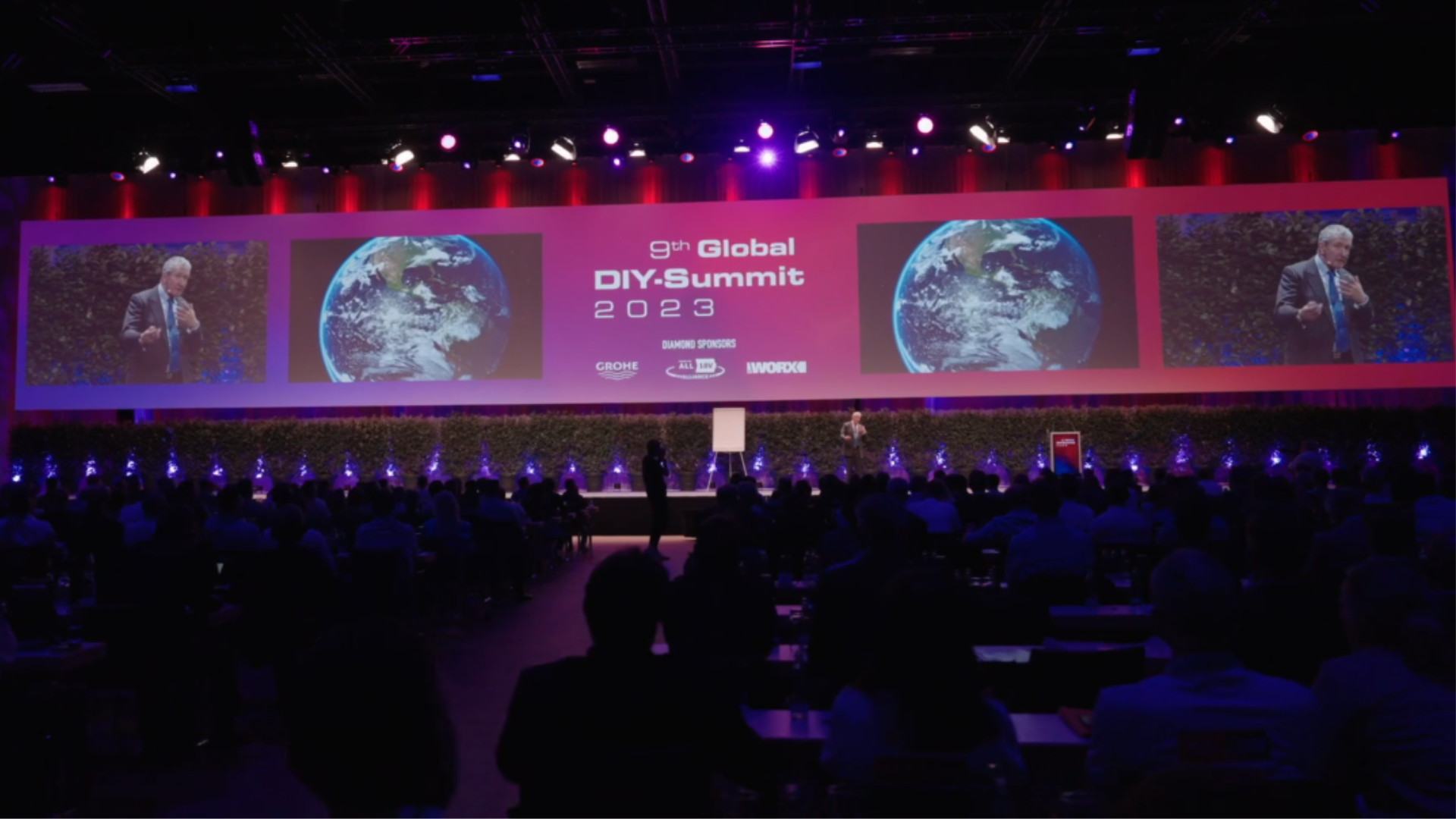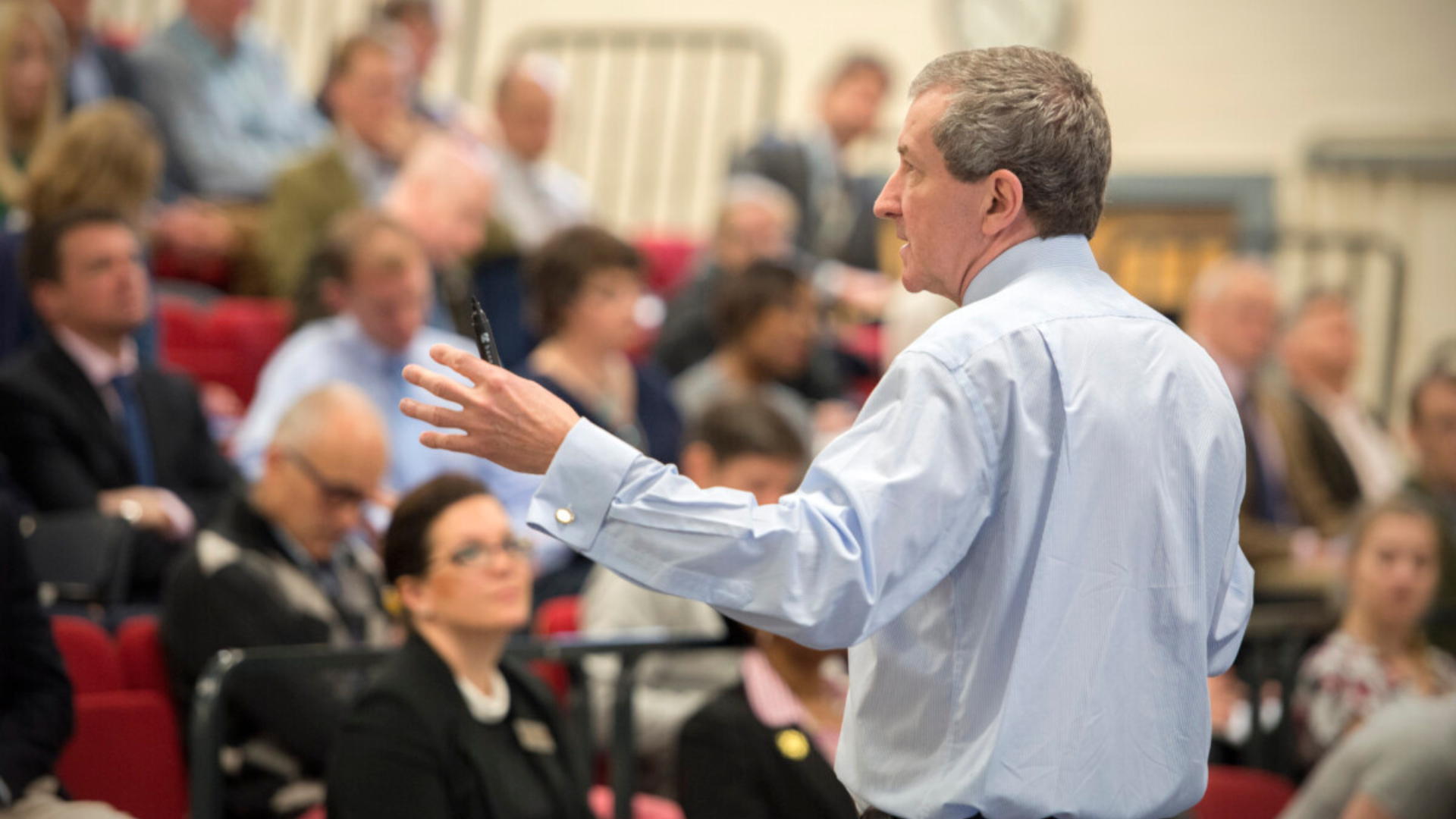Why we spoke with Chris
Managing leadership capability is one of HR’s toughest challenges. Engagement, performance and future-readiness all depend on how well managers and leaders show up every day. Yet too often, HR’s efforts stall unless leaders are equipped with the skills to succeed.
To explore this, we sat down with Chris Roebuck, a leadership expert with more than 40 years of experience across the military, business and government. His work is practical, grounded, and focused on helping leaders get better results. For HR, that’s critical: his advice translates directly into what teams can act on tomorrow.

The “Hidden 10%” most leaders leave untapped
Chris Roebuck:
Research and experience both show that around 80% of leaders have at least 10% of performance potential they aren’t using. It isn’t because they don’t want to improve; it’s because they’ve never been given the fundamentals of leadership at the right depth.
When those basics are in place, performance unlocks quickly. Teams become more engaged, decision-making improves and results follow. This isn’t about working harder, it’s about leading smarter.
For HR: helping managers access this hidden 10% is one of the clearest ways to prove strategic value.
Simple actions beat complex strategies
Chris Roebuck:
I once worked with a private-equity-owned construction business where leaders were drowning in work. They hadn’t learned the basics of everyday leadership, so they weren’t able to get the best from people. We focused on simple, practical steps: stop what doesn’t add value, double down on what does, and focus attention where it matters. In two years, employee engagement jumped from 40% to 82% and profitability rose alongside it.
For HR: sometimes the biggest wins come from focus on key fundamentals, ensuring day-to-day effectiveness.
Where to start: the core skills
Chris breaks leadership down into three essentials:
- Optimising task delivery - improves performance and frees up time.
- Getting the best from people by using that time to help teams thrive.
- Aligning the strategy by directing team energy towards real business goals.
For HR: cutting through the noise and focusing development here builds capability that matters right away.
From “business as usual” to “business of the future”
Chris Roebuck:
I’ve built a six-step roadmap called Accelerate Your Success. It gives leaders a clear path to being more effective and future-ready. But here’s the catch: HR is the catalyst. If HR doesn’t give line managers the capability they need, they can’t inspire and enable transformation.

For HR: success is about HR’s hands-on work with managers that makes building the business of the future possible.
Why AI still needs HI (human intelligence)
Chris Roebuck:
AI can’t inspire, align, or reassure people. Leaders will be the ones who enable the AI adoption via trust: communicating the vision, building confidence, spotting where AI adds value, and supporting people through change.
For HR: prepare leaders to be the bridge between AI and the workforce.
The one thing leaders can do tomorrow
Chris Roebuck:
Delegation. More than 70% of leaders have never been shown how to delegate well. Here’s my five-minute test: ask yourself, “What am I doing regularly that someone on my team could take on?” Then hand it over.
That single action often frees up half a day per week per leader. Multiply that across an organization, and the capacity unlocked is huge.
For HR: putting key fundamental skills in place can have an immediate, visible impact and earn trust with managers fast.
The HR perspective
Poor delegation is one of the biggest drivers of poor team performance, poor leadership, and potential leader burnout. Employees don’t grow, leaders get stuck in the weeds, and HR ends up dealing with retention and performance headaches.
When managers delegate well, leaders get back time, employees feel trusted, and HR gets credit for driving both productivity and engagement.
Final word: HR as a performance catalyst
Chris Roebuck:
HR can have a major impact on performance simply by helping leaders master the fundamentals: prioritising, managing time, delegating, communicating, and giving feedback. Real transformation doesn’t come from complicated frameworks, but from consistently getting the fundamentals right.
Start small. Pick one leadership habit, build it into everyday practice, and watch the ripple effect across the organization.

👉 To learn more about Chris’s work, articles, and speaking engagements, visit chrisroebuck.live




.jpg)

